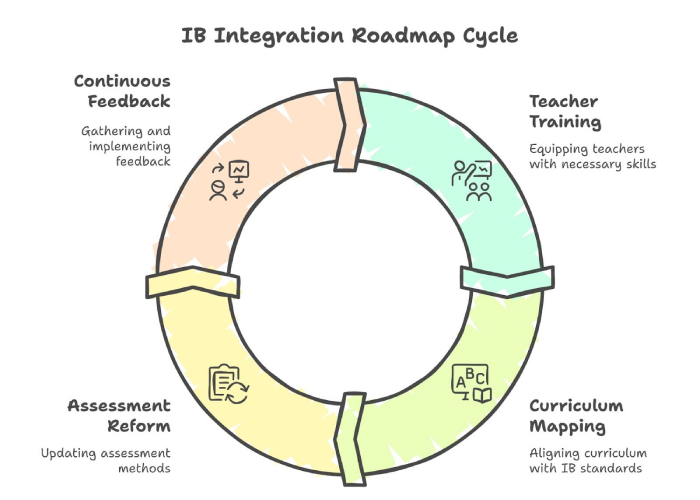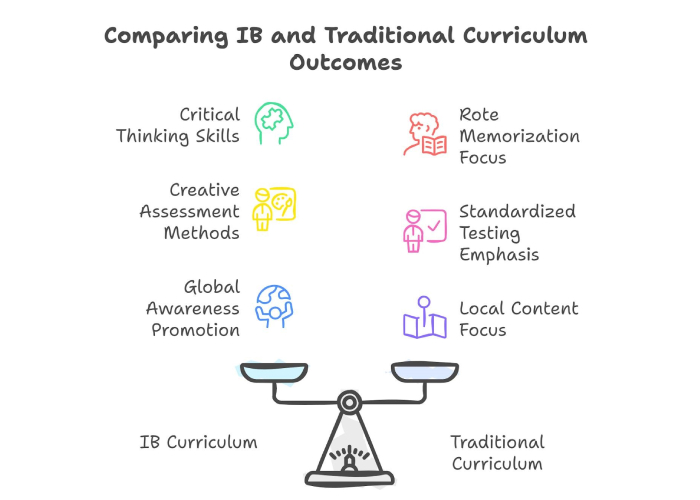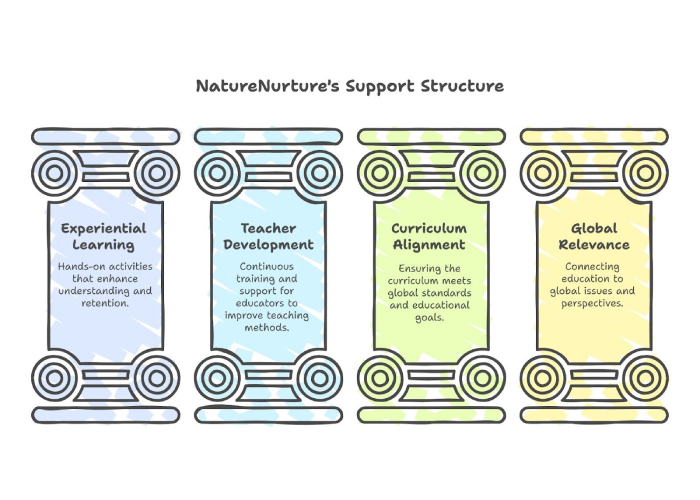From Local Classrooms to Global Citizens: Elevating Education through IB Curriculum Integration Strategies
- Home
- /
- From Local Classrooms to Global Citizens: Elevating Education through IB Curriculum Integration Strategies
From Local Classrooms to Global Citizens: Elevating Education through IB Curriculum Integration Strategies
Introduction: The Global Lens Every School Needs
In an age where students may one day work in careers that do not yet exist, the role of a school extends far beyond delivering textbooks and tests. School leaders in India are increasingly realising that the International Baccalaureate (IB) curriculum offers more than academic rigour; it offers a mindset. By integrating IB principles into existing school frameworks, schools can elevate their learning standards to meet international benchmarks while staying deeply rooted in Indian values. For private school owners, principals, and curriculum heads, this is not about replacing what works; it is about enriching it with strategies that prepare students to think critically, act ethically, and compete globally.
Why IB Curriculum Integration Matters for Indian Schools
IB curriculum integration is not simply a matter of adopting a syllabus; it is a commitment to a philosophy that values inquiry, intercultural understanding, and real-world application. Indian schools that have woven IB frameworks into their teaching have seen a tangible shift in classroom culture from rote memorisation to curiosity-driven exploration.
For instance, a school might retain its CBSE or ICSE core subjects while embedding IB’s learner profile attributes such as “open-minded,” “reflective,” and “principled” into lesson design. This dual approach ensures that students not only master content but also develop the adaptability, empathy, and resilience needed for a globalised workforce.
NatureNurture’s transdisciplinary curriculum solutions already align seamlessly with IB principles, making integration not just feasible but transformative.

Core Strategies for Successful IB Integration
1. Align Pedagogy, Not Just Content
Many schools make the mistake of treating IB as a set of topics rather than a teaching philosophy. The most successful transitions involve retraining teachers to facilitate discussions, encourage student-led inquiry, and link every concept to real-life contexts. Teacher professional development, a cornerstone of NatureNurture’s offerings, ensures that educators shift from information-delivery to learning-facilitation.
2. Embed Interdisciplinary Learning
The IB approach thrives on breaking silos. A unit on “Water” could blend chemistry (water quality testing), geography (river basin systems), economics (water as a scarce resource), and ethics (access and equity). This mirrors NatureNurture’s experiential, “learning-by-doing” approach, making integration natural rather than disruptive.
3. Invest in Assessment Reform
Traditional Indian assessments often prioritise recall over reasoning. IB-inspired evaluation uses formative assessment, portfolios, and performance tasks that gauge a student’s ability to apply learning in unfamiliar situations. This aligns perfectly with NEP 2020’s competency-based vision and positions schools as future-ready education providers.

Overcoming the Common Challenges of IB Integration
Teacher Readiness
Shifting mindsets is harder than rewriting syllabi. Comprehensive workshops and ongoing mentorship are essential to sustain the IB ethos in classrooms.
Curriculum Overload
School leaders fear “doubling” the workload. The key is thoughtful curriculum mapping, identifying overlap between IB themes and existing board requirements, thereby streamlining rather than overburdening.
Infrastructure & Resources
IB teaching often demands access to technology, labs, and collaborative spaces. This does not necessarily mean expensive new facilities; strategic use of digital tools, community partnerships, and flexible learning spaces can bridge the gap.
The Competitive Advantage for Schools
In a market where discerning parents seek more than grades, IB integration positions a school as a premium learning destination. The approach signals a commitment to producing confident communicators, critical thinkers, and globally aware citizens. Combined with NatureNurture’s expertise in curriculum design, schools can create a differentiated brand identity, one that attracts enrolments and builds long-term trust with the parent community.

Conclusion: A Call to School Leaders
International learning standards are not the future; they are the present. Schools that act now will lead the wave of educational transformation in India. With the right strategies, guidance, and curriculum support, integrating IB principles is not only possible but also deeply rewarding for students, teachers, and the institution as a whole.
NatureNurture stands ready to partner with schools on this journey, bringing two decades of experience in experiential learning, curriculum alignment, and educator empowerment. It is time to give your students the education the world is waiting for.
©2025 NatureNurture

